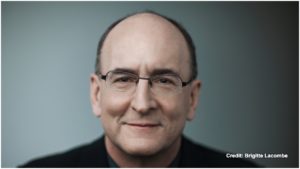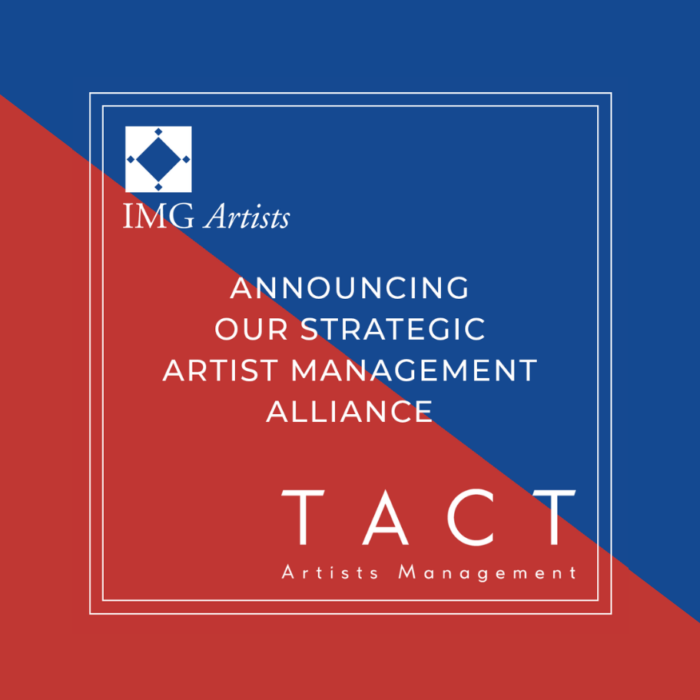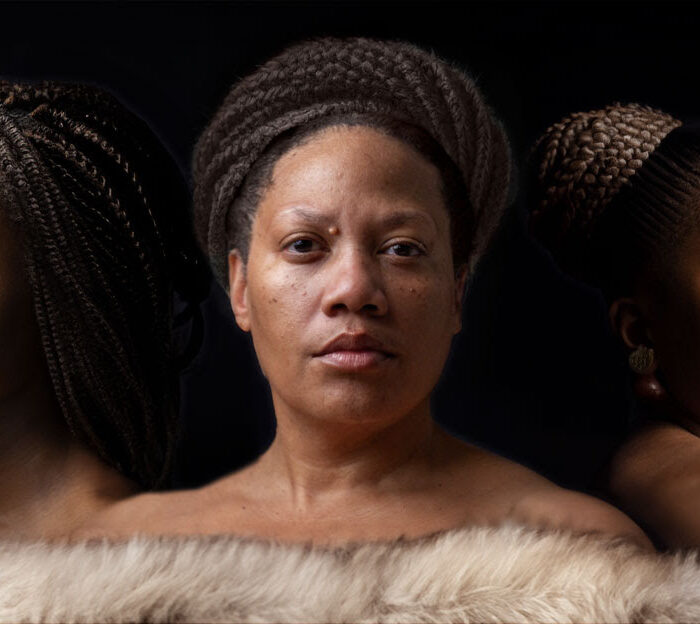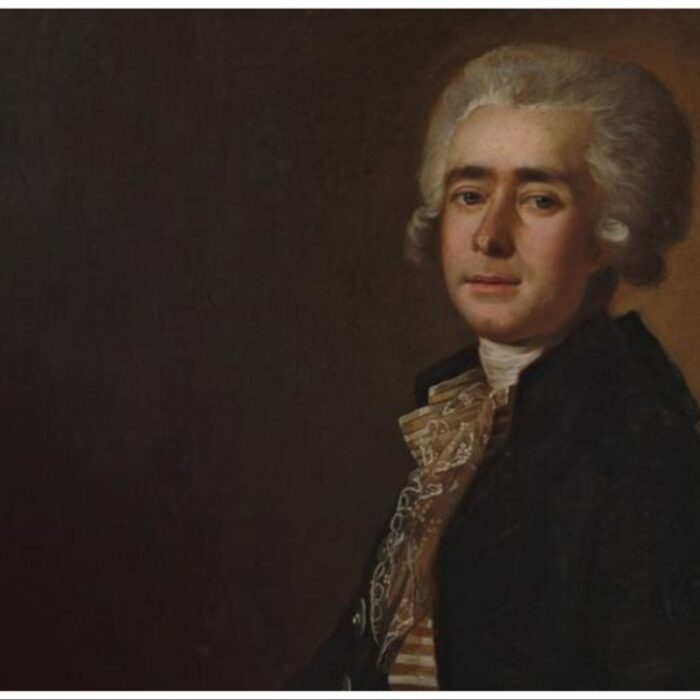
Peter Gelb Makes Statements on Anna Netrebko Fallout, the Anti-LGBTQ Law in Russia, State Funding & Diversity at the Met
By Francisco SalazarIn a recent interview appearing in Van Magazin, Jeffrey Arlo Brown spoke with Met General Manager Peter Gelb in which he discussed a wide variety of topics, with considerable questioning around the Russian war on Ukraine, his falling out with soprano Anna Netrebko following an expose where the New York Times revealed she had filed a grievance against the Metropolitan Opera, and Russia’s regressive policies toward the LGBT community.
Van Magazin published the interview in French and German. In this article, OperaWire has spotlighted some of the major excerpts for our English-speaking audience.
Government Support of the Arts
One of the major topics discussed in the interview was the lack of state support for the arts. Gelb noted that he was “more wistful than jealous. It would be great if the state provided us with money to pay salaries.”
He acknowledged that this “approach,” which included leaving the members of the Metropolitan Opera Orchestra without pay throughout the pandemic shutdown and throughout 2021 and the subsequent lockout of stagehands, was “controversial,” but emphasized that “his goal was to ensure the survival of the Met. It was certainly a very difficult time. We tried. I’m not saying that the system here is perfect, it’s not. I wish we had state resources, but we don’t have them.”
He also noted that he is in constant conversation with “government representatives and Rosa DeLauro, a very influential member of the House of Representatives. She is chairman of the licensing committee of the House of Representatives and an opera lover. I recently had lunch with her. We talked about special funds for the arts, for opera. She is enthusiastic, but she is dealing with the conservative side of Congress.”
Diversity at the Met
Gelb also made mention of his efforts to promote a more diverse repertory and representation at the Met, noting that “during this season, we have also fundamentally changed our repertoire. We premiered three new contemporary operas at the Met, so many have not existed in one season since the 1930s. And we made this aware in order to revive the opera audience here. This was also a direct episode of Black Lives Matter and an obvious necessity that I have been nibbled on for years. It was obvious that more had to be done to promote new and more diverse art. I really think that’s a mission. I feel like I’ve been on a mission since I got here: to keep opera alive in New York.”
He also emphasized the importance of Black composers at the Met.
“There is no question that works by black composers should have been performed earlier,” Gelb stated. “When I started here, we made much less new works. Now we are doing much more. I don’t want to make this an excuse, I’m just saying: better late than never. Now we have a pipeline through which we obtain works by many black composers. We have just awarded composition commissions to three composers. Next season we will be ‘Champion’ by Terence Blanchard. And we will produce Anthony Davis’ ‘X.'”
Additionally, Gelb noted that “the other major factor this season was Ukraine, which became a leitmotif for the entire ensemble. I believe that with our actions in defense of Ukraine and against Putin and his oppressive apparatus, we are also pioneering for other houses.”
The Bolshoi & Russia
When Gelb was asked about Gergiev and Netrebko’s ties to Putin over the years, the General Director said, “First to your second point: I was in Moscow on February 23 for a Lohengrin co-production of the Met and the Bolshoi Theatre. Nobody really believed that Russia would invade Ukraine, not even the night before – at least nobody expected it from the artists. The only ones who knew this were Putin and the US government.”
Gelb had been at the Bolshoi for the Opening Night for a co-production of “Lohengrin” at the Bolshoi even though the U.S. government had warned American diplomats to evacuate on Feb. 20. The news was reported around the world in all the major newspapers. On Feb. 12, the U.S. also evacuated most Ukraine embassy staff over invasion fears.
In regards to the prior ties with the artists, Gelb said, “The difference is that while Putin was already a growing threat before February 24, it was still encountered on the political stage. I also know that Russian forces invaded Georgia in 2008.”
Over the years Gelb has made several statements regarding Netrebko. Following a protest at the opening of “Iolanta” in 2015 he said, “As an artistic institution that believes in the freedom of expression, the Met does not have to be in agreement with the personal views of the artist who performs on its stage. We support Mrs. Netrebko as one of the world’s leading opera singers and are proud that she sings at the Met.”
Russia’s LGBT Anti-Gay Law
When asked about the USA being at war with Russia, the General Director said, “We may not say we are at war with Russia, but we are. It’s more than just the one drop that breaks the camel’s back. An attempt is being made here to wipe out an entire civilization, the entire people of Ukraine. To my knowledge, what Putin is up to is like nothing that has ever happened before. I got the impression that there is no possibility of further cooperation with Russia and in this case with the Bolshoi Theatre, although I appreciate the head of the Bolshoi, Vladimir Urin. But because it’s a state-sponsored organization and Netrebko is a close personal ally of Putin, both in her actions and her mindset – and I know that from personal experience because I’ve spoken to her and I’ve known her for many, many years – what I have long tolerated is now unacceptable.”
He added, “Anna debuted at the Met before I came here, but I’ve continued to work with her and in many ways made the Met a kind of home base for her. In 2006 I told her that if she committed to doing two operas a year at the Met, I would engage her in new productions and they would also be broadcast on our HD streams. That’s what I did then. At the same time, I was very aware the whole time that you are actually right in what you just said about your personal political closeness to authoritarianism and to Putin.”
Gelb went on to speak about the anti-LGBT bill that Putin signed stating that he had not implemented the law himself.
He said, “When Putin criminalized homosexuality 10 years ago, he did not implement this law himself. The Bolshoi continued to perform Nureyev’s ballets and all that kind of stuff.”
Van Magazin added in quotes, “However, the enactment of a nationwide law banning homosexual ‘propaganda’ in Russia in January 2013 was followed by a series of hate crimes against LBGTQs, but the perpetrators were not directly linked to Putin’s government. Red.”
In 2013 Putin signed into law an anti-“propaganda” bill targeting non-traditional relationships after it was approved by both houses of the Russian Parliament. Putin then stated that he was not against the LGBT community but LGBT rights activist Nikolai Alexeyev said, “History will prove that (Putin) made a mistake that the future generations are unlikely to forgive.”
That same year gay rights demonstrators were arrested in St Petersburg after attempting to hold a gay pride rally because it was deemed to have broken the city’s anti-propaganda laws.
According to the Human Rights Organization, “the law has been used to shut down websites that provide valuable information and services to teens across Russia and to bar LGBT support groups from working with youth. It has also had effects on individual mental health professionals.”
In 2022 the Russian government, under Putin, was looking to close all LGBT rights groups.
Gelb’s comments on the LGBT law contradict those from his 2013 opinion piece in Bloomberg which he wrote before the opening of Eugene Onegin,” starring Anna Netrebko and conducted by Valery Gergiev. He said, “With activists preparing to picket the Met’s season-opening production of Tchaikovsky’s ‘Eugene Onegin’ tonight, I think it is important that the public understands why the Met is not dedicating its performance to the oppressed gay citizens of Russia, even though we’re being pressured to do so. The activists argue that since Tchaikovsky was gay and our performance features several Russian artists who have been associated with Vladimir Putin, the Met must turn our performance into a public rebuke of Russia and, by association, the Russian performers on our stage.”
Gelb added, that in “the Met’s 129 year history, the Met has never dedicated a single performance to a political or social cause, no matter how important or just. Our messaging has always been through art.”
The General Manager also pivoted in his article, “While I’m confident that many members of our company join me in personally deploring the tyranny of Russia’s anti-gay laws, we’re also opposed to the laws of the 76 countries that go even further than Russia in the outright criminalization of homosexuality.”
In the opinion piece he also concluded by stating, “Although Russia may officially be in denial about Tchaikovsky’s sexuality, we’re not. The Met is proud to present Russia’s great gay composer. That is a message in itself.”
During the 2013 protest, Netrebko also released a statement, “As an artist, it is my great joy to collaborate with all of my wonderful colleagues — regardless of their race, ethnicity, religion, gender, or sexual orientation. I have never and will never discriminate against anyone.”
In the interview with Van Magazin, Gelb concluded by stating “I’m not saying it’s right in any way. I’m just saying that there’s a difference between working with institutions in a country with morals beyond questionable and working with institutions in a country trying to wipe out a people. You may disagree, but for me, a red line has been crossed.”
Over the past months, OperaWire had reached out to the Met regarding numerous artists still contracted at the Met who have continued performances at Russian institutions like the Bolshoi and Mariinsky Theatre. While we understand that these artists are under contract as ensemble members and statements against their home country put them and their families and friends at risk, we have asked the Met for statements regarding these exceptions and have received no responses.
James Levine
Near the conclusion of the interview with Van Magazin also asked Gelb about James Levine. Brown asked, “With all due respect to the presumption of innocence and the complexity of this topic, I would like to ask one more question: When I was playing in a youth orchestra in Boston as a teenager, everyone knew that James Levine had been accused of sexualized violence against boys. Help me understand how this rumor could have been so widespread and pervasive that a kid who didn’t even come from a musical family would know it and Levine could still be here at the Met. That doesn’t add up for me.”
Gelb responded, “All I can tell you on the record is that he’s not here. I have to look ahead in what I do.”
Categories
News

